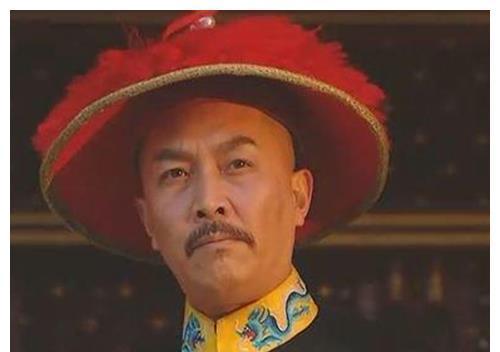Wang Anshi, the famous minister who presided over the "Xining Change of Law" during the Northern Song Dynasty, when facing the heavy pressure of changing the law, said a famous saying that has been quoted by later generations for many years: "The sky is not enough to be afraid, the ancestors are not enough to the law, and the people are not enough to speak of compassion", which means that natural phenomena and the system of the predecessors have been rumored that they are not enough to make people fearful, and naturally they are not enough to change some of their decisions.

However, the most important reason why Wang Anshi put forward such a statement is that people generally abide by this "three fears", even in the Manchu Qing Dynasty, even in the Manchu Qing Dynasty, it was still the case, or even more serious. When we see the palace drama today, some people in the court will say things like "the ancestral family law cannot be violated" at every turn, which shows that the influence of the previous emperors is extremely huge, even after many years of death, they can still have great authority.
This authority first comes from the prestige of the previous emperor in the government and the opposition, if the successor deviates, it will naturally damage his prestige in people's hearts, and secondly, from the feelings of the successor and the previous emperor, to know that they are usually related to each other, usually the blood relationship between father and son and even grandchildren, if the son disobeys the father, the grandson violates the grandfather, which is a great filial piety in ancient times, and when an emperor bears the reputation of "filial piety", it is difficult for him to convince the officials and people. This is a direct threat to one's own power.
It is precisely because of the existence of these two factors that many years after Wang Anshi proposed the "three fearlessness", the emperors of later dynasties and dynasties still will not easily change the orders of the previous emperors, let alone the well-known explicit wills of the world, but the Qianlong Emperor did such a thing, and the most peculiar thing is that after he violated the will of the previous emperor, he did not let himself bear the name of "filial piety", but everyone in the world praised his "filial piety".
Yongzheng ascended the throne in 1722, and it was not long before he received a "plea for guilt" from Yue Zhongqi, the governor of Sichuan and Shaanxi, who turned out to be Yue Zhongqi receiving a letter from Hunan Xiucai Zeng Jing to make him rebel, although Zeng Jing was only a small person, but Yue Zhongqi did not dare to be careless, and after a cold sweat, he handed Zeng Jing's letter to Yongzheng, and also wrote a letter explaining in detail that he had absolutely no intention of rebellion.
After Yongzheng had appeased Yue Zhongqi well, he investigated Zeng Jing in detail and found that he was a Xiucai who had failed many times in the imperial examination, and because he had read the books of The Great Ru Lü Liuliang and had anti-Qing thoughts, he told people everywhere that he wanted to "overthrow The Manchus and restore the Han Dynasty", and because of this, without any contact, he wrote a letter to Yue Zhongqi, a descendant of the anti-Jin hero Yue Fei, to rebel, and as a result, he immediately waited for the officers and soldiers, and the whole family went to prison.
After learning about the causes and consequences, Yongzheng believed that Zeng Jing was "a corrupt Confucian, not enough to worry about", but the anti-Qing ideas in Lü Liuliang's writings were very dangerous, so he ordered the destruction of all of Lü Liuliang's writings and exiled his entire family as slaves, and his explanation to the officials and people was that "Zeng Jing slandered Yu Shuo, while Lü Liuliang falsely accused the Holy Ancestor emperor of shengde".
This means that although Zeng Jing scolded me, the open-minded Saint Tomorrow Son of mine naturally would not bother with him, but Lü Liuliang scolded my father (Shangfa Shengzu), then I must deal with him, otherwise I am not filial piety! Under the guidance of this thought, although Zeng Jing committed the "great crime of conspiracy against the people", he was put back, and in order to reassure his heart and show his magnanimity to all the people in the world, Yongzheng also left a will before his death: "Future generations must not kill this person!" ”
As a result, after Yongzheng died in 1735, his son Qianlong sentenced Zeng Jing to capital punishment after he ascended the throne, and the crime was quite exquisite, that is, "slandering the former emperor", that is to say, the reason why he wanted to kill you was because you scolded my father, and the reason why Yongzheng wanted to give the sin to Lü Liuliang was also because "you scolded my father", Qianlong killed Zeng Jing for this reason, which seemed quite righteous, and the officials and people of the world had nothing to say, and could only praise his filial piety.